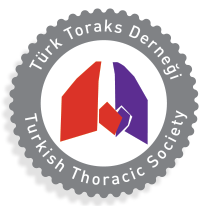OBJECTIVE: Coronavirus disease 2019 is a disease caused by severe acute respiratory syndrome coronavirus 2, a novel type of coronavi- rus, which causes pneumonia in some hosts. No specific scoring method exists for mortality evaluation in novel coronavirus pneumonia. The aim of this study was to investigate factors affecting coronavirus disease 2019 mortality and comparison of pneumonia scoring sys- tems, pneumonia severity index, CURB-65, and MuLBSTA.
MATERIAL AND METHODS: In this single-center clinical study, 151 patients who had been diagnosed with coronavirus disease 2019 infection and pneumonia between March 11 and May 31, 2020, were evaluated retrospectively. Correlation between patients’ symptoms, comorbidities, drugs in use, radiological findings, and mortality was investigated. Parameters were also evaluated regarding their contribution to additional treatment requirements and days of fever response.
RESULTS: A correlation between mortality and higher scores of pneumonia severity index, CURB-65, and MuLBSTA was found. When parameters were investigated separately, elevated glucose and urea levels, presence of diabetes, renal failure, hypertension, chronic obstructive pulmonary disease, cerebrovascular events and known malignancies, lymphocyte count, smoking history, radiological find- ings, and age correlated with mortality.
In addition to these parameters, elevated calcium, potassium, brain natriuretic peptide, troponin, d-dimer, C-reactive protein, HC03, and lactate dehydrogenase levels were found significant regarding mortality. These parameters were not found statistically relevant regarding additional treatment requirement, fever response day, and total treatment duration.
CONCLUSION: A modified version of present pneumonia scoring systems will be required to rigorously evaluate the severity of a patient’s condition. A new scoring system that uses components of the present ones may prove useful and with further studies, a similar follow-up algorithm may be created.
Cite this article as: Ensarioğlu K, Kevser Erdöl A, Kurt B, et al. Coronavirus disease 2019 pneumonia scoring system comparison and risk factors. Turk Thorac J. 2022;23(5):307-321.



.png)
